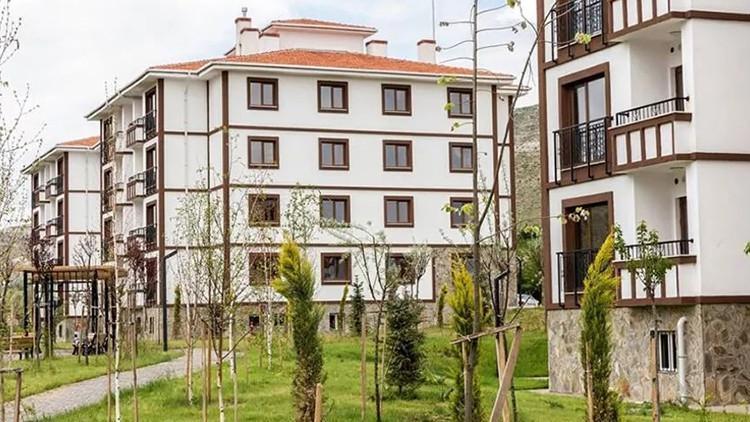
While the government was carrying out a housing move for low-income citizens with the “My First Home My First Workplace” social housing project, a model proposal came from the private sector to support their housing needs.
The private sector, which has prepared a roadmap based on the development of accessible housing on lands owned by the state, proposes to develop houses on these lands and to rent them to citizens under the regulation of the state. In this leasing model, rents are planned to be equivalent to 30 percent of disposable household income in a household with two people.
The real estate sector, which came together at the Real Estate Summit held for the 17th time by the Real Estate Investment Partnership Association (GYODER), took the latest developments and future vision on its agenda. At the “Accessible Housing” panel held at the summit, a rental housing proposal was tabled for citizens under the regulation of the state.
GYODER Chairman of the Board Mehmet Kalyoncu, who explained his suggestions regarding the details of the model at the summit, said that they established an “Accessible Housing Committee” as an association.
“There is a figure that we can see very clearly in the sector, and that is the number of licenses: We have seen it drop to 30 percent of normal,” he added.
“At this point, we expressed that we should produce and that we should eliminate the obstacles in front of production. Land accounts for half of the cost of real estate development. We are currently stuck in an equation where the land is 50 percent. There is no such rate in the developed countries of the world. Our model is based on that as well.”
‘The cost will come down’
Emphasizing that they reduced the share of the land, which was 50 percent in the development process, to zero in the model they proposed, Kalyoncu said that the cost will also be halved in this way.
“We are halving the cost of resources that must be generated by funding and mortgages,” he said.
“This is only possible if the state decides to use its lands for this purpose. We presented this model to the relevant ministries and institutions in March. It is a new model for everyone. No real estate developer in Türkiye develops housing for rental purposes.”
Kalyoncu noted that long-term rentals should be considered.
“We recommend that the lease be made with long-term contracts, not annual or for three-five years,” he said.
“It is also important to make the tenant feel comfortable. If a model of public-private cooperation is developed, the state can issue an annual rent schedule.”
Expressing that the return on investments will be 15 years, Kalyoncu said that a loan facility should be offered on these terms.
He noted that the effects of the announced social housing project are immediately visible.
“We say that not only the state but also our industry should get involved in this business,” Kalyoncu added.
“We do not use 70 percent of the capacity. Currently, Turkish real estate developers are developing real estate in England, Portugal, Miami, Canada and Germany because they cannot find land stock in Türkiye. We also discussed the issue with our industry representatives. Our sector representatives want to give back to the society.”
Kalyoncu stated that the constructions can be done very quickly and that the houses can be built in one to one-and-a-half years if the model starts.
“By its third year, 100,000 houses can be produced with this model, 300,000 or 500,000 can also be produced. But finding land is important. There is no land in Istanbul,” he said.